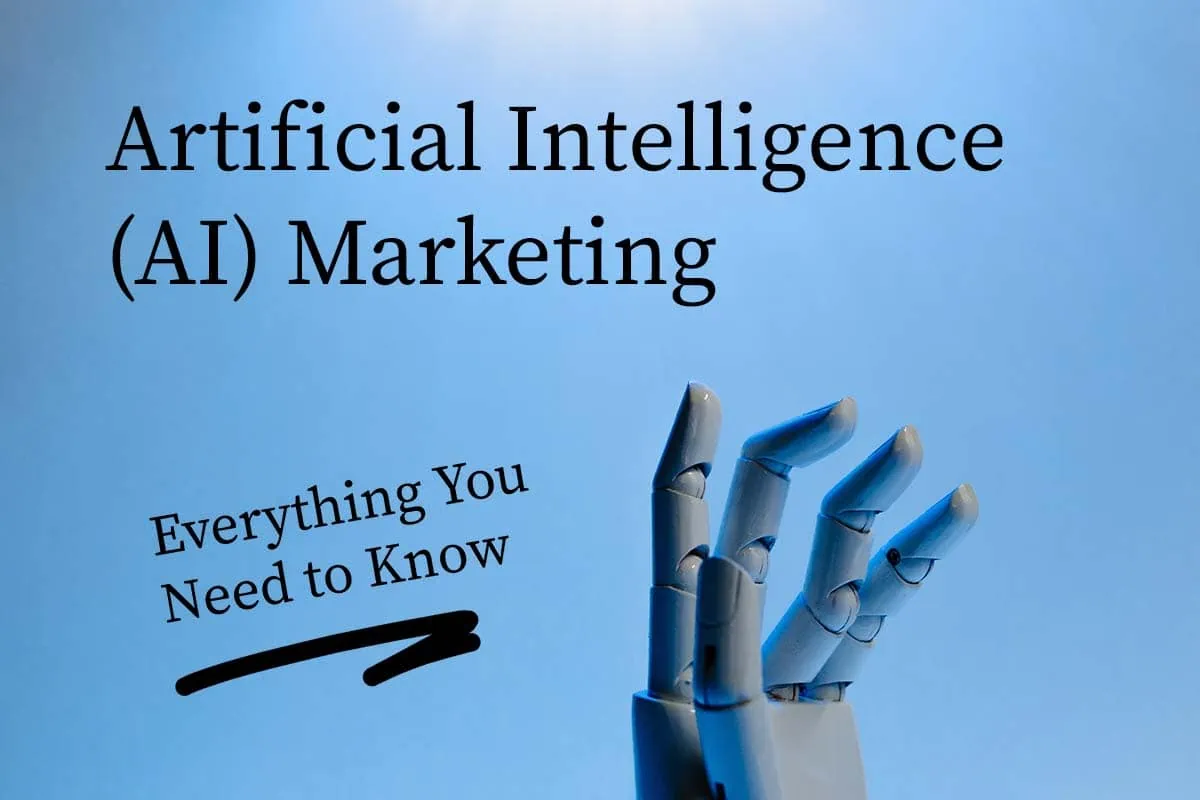
Artificial Intelligence Marketing is one of the newest and most exciting fields when it comes to the marketing and advertising industry. With it being such a new field, it can be difficult to understand what exactly it is and how it works with other marketing methods.
In this article, we aim to explore the many ways AI marketing is currently being utilized and how it might be used in the future.
But first – what is artificial intelligence marketing?
What is Article Intelligence Marketing? A Clear Definition
Artificial Intelligence (AI) Marketing is the use of computer systems to execute marketing tasks that would previously require human intervention to complete. AI Marketing utilizes algorithms, empirical data collection, trend analysis, and machine learning to understand and compile observations that can be used for advertising and business assignments.
This data-driven artificial intelligence allows marketing teams to push the boundaries of what can be completed within a certain time limit. It is now being used within many organizations and is found helping marketers with:
- Freeing up time by completing mundane tasks (emails, content creation, automated responses)
- Gaining a deeper understanding of their target audience (also known as a customer segment)
- Increasing conversion rate by personalizing the customer journey (with image recognition, chatbots, and personalized content deliverability).
When a computer system can pull together data observations based on empirical data, it can easily predict customer behavior with a set of predetermined values. This means that artificial intelligence is paving the way to fine-tuning the best conversion rates and will remain an essential part of marketing strategies for years to come.
AI data collection service plays an important role in AI Marketing by collecting and organizing huge quantities of customer information for improved insight. These services enable businesses to examine consumer behavior, streamline marketing campaigns, and enhance personalization activities. Through the application of high-quality AI-based data collection, businesses can make better decisions and maximize their return on investment (ROI).
Now that we know about artificial intelligence marketing and how it works, let’s explore how it is currently being used today to help assist marketers and improve ROI for clients and businesses.
How is AI Marketing being used Today?
Artificial Intelligence in marketing has been around for some time but it really has changed the workplace within the past decade.
Also known as machine learning, it is currently being used in many different forms in the field of marketing, although, there are some main areas of expertise where artificial intelligence is known to play a major role.
- Content Creation with Natural Language Processing (NLP)
- Data Analysis and Reporting
- Media and Advertising Placements
- Building Target Audience
- Strategic Decision Making
- Automated Personalization based on Data
Let’s cover some of these topics in detail.
Content Creation with Natural Language Processing (NLP)
When artificial intelligence is mentioned in the same sentence as marketing – content creation and creative writing is usually the first thing that comes to mind. This covers a vast variety of different topics that fall under the “content umbrella”. Moreover, the Large language models (LLMs) have also been developed which are part of generative AI and can learn large sets of data.
Here are some methods that are being used today to assist marketing teams.
Social Media Headlines and Copy
Writing copy for social media posts can be both a tedious and challenging process.
Fortunately, you can maximize social content ROI using AI because there are a ton of different AI programs available that can help assist with social media copy – whether that be in the form of a LinkedIn post for a business or a video description for YouTube.
For example, Copy.ai is one such company that provides lightning-fast copy within minutes. All one needs to do is provide the program with a bit of context and the AI machine will do the rest.
Keep in mind that as artificial intelligence is still fresh in the world of marketing, most companies will use it as a way to help with structure or by providing additional ideas. It is not often the only resource used to create new content and should be considered when creating new posts.
Let’s see what happens when we try to create a YouTube video description using their AI platform.
After logging into the platform with a free trial account, I entered the following details into the program to see what sort of descriptions would come up.
The platform provided me with four different descriptions with the option to create more. While the first description seems a bit weak, the second description seemed right on the money.
It may not be a scholarly write-up, but it could allow a team to save valuable time by having the platform create content that might take them time to think about and create as opposed to creating something within seconds.
There are various AI tools you can choose from and this is just one example of a powerful program that can be used to create just about any piece of social media content – including anything from Facebook headlines to TikTok descriptions.
Social Media content might be the simplest form of content creation with AI but it is also found all over the internet within blog articles – sometimes writing complete articles without any human intervention.
Blog Article Writing and Content Marketing
Let me start by saying this.
Creating valuable content that is exciting and engaging will require creative writing from an actual human being and cannot be crafted using only machine learning.
But, in complete transparency, the world of marketing does not always seek to create content that is going to provide value to its readers.
Yes – the part of marketing and content marketing that no one wants to talk about.
Many businesses aim to build backlinks to help boost the organic traffic of their websites meaning they need to find other websites to add articles that they created.
When these businesses are submitting articles to other websites, it is not often they are going to break the bank and spent a ton of money creating an article that is extremely valuable. They will often use AI to assist with the writing or hire a low-cost writer from another part of the world to write the article.
Using natural language text generation technologies, the program can craft an entire article with only a bit more information than when using it for a social media description or headline. The results – while far from perfect are fascinating.
Note: Google has been penalizing websites that often use AI content without edits and at this time, will give priority to human-written writing over AI content when it comes to search queries.
There are programs – like Article Forge, that can create full blog articles using only keywords of your choice.
Their formula is simple enough.
Your intent for the article + The keyword you want to rank for.
We did the heavy lifting so you do not have to and signed up for a free 5-day trial (which required signing up with a credit card).
The topic? We chose to use the topic “Different Types of Flutes” as we felt like it could provide a clear subheading structure.
The result for a 1500-word article crafted within minutes was nothing short of incredible. While the content would need to be retooled to utilize it for the best content possible, it was able to successfully retrieve the main categories properly and create facts and content that would have taken me hours to search for on the internet.
Use it however you see fit but when a complete article is created within seconds of providing a set of keywords, you can see the complete potential for AI in content writing and we can be sure that it is not going anywhere any time soon.
Machine-Generated Website Copy
Another way that AI content creation can be extremely useful and is common for many teams is the use of machine-generated content for website copy.
There are many times that a client will recruit the help of a marketing team or designer to craft a new website for their business. They avail web hosting services like the ones listed in Increditools for a cheaper price. But sometimes, they lack the time to create any of the content. Artificial Intelligence is a great resource when it comes to building this type of content as it may include topics that a marketing professional may not be completely familiar with.
A program like Copy.ai – which we mentioned earlier for content creation within social media, also has excellent capabilities when it comes to website copy.
As with any AI content creation program, it is important to use it sparingly and wisely as one part of your content creation strategy, and should not be a complete replacement for human-written content creation.
Another major role artificial intelligence plays in the field of marketing is in data analysis and reporting.
AI with Data Analysis and Reporting
Data collection is the basic premise of how artificial intelligence works with marketing and advertising so it only makes sense that AI can use this to compile advanced marketing reports and analysis.
Artificial Intelligence has the ability to collect data from various sources and combine them to detect and understand patterns that are then used for future predictions and trends. This can be extremely helpful for businesses since AI can make better use of large amounts of data and come up with trend analysis almost immediately. The future of artificial intelligence lies in its ability to revolutionize industries by analyzing vast amounts of data, identifying patterns, and delivering rapid trend predictions to drive smarter business decisions.
The newer Google Analytics 4 platform is an excellent example of how a company is incorporating machine learning to come up with sophisticated insights for users.
These types of reporting programs combine the use of artificial intelligence and algorithms to come up with predictions for trends and user behavior.
Perhaps one of the most important aspects of machine learning in these data programs is the ability to predict and understand user behavior without providing the users’ identity. In a time where privacy is of utmost importance, this artificial intelligence bridges the gap between keeping a user anonymous and understanding user actions.
There goes without a doubt that Google is one of the innovative leaders when it comes to artificial intelligence with data collection and reporting.
You can explore all of Google’s AI services here.
Speaking of Google…
The Google Ads platform is another fine example of how artificial intelligence and machine learning is being used to assist marketers in the form of media buying and placements.
Media and Advertising Placements
Popular platforms like Google and Facebook are known for their advertising capabilities and both industry giants make use of artificial intelligence in their programs.
Budget Control
Google Ads utilizes AI to assist with budget control and uses previous campaign data to automatically shift budgets to different campaigns, ad sets, or ads, depending on different user actions and conversions.
It may be challenging for some marketers to give up control of how and where a budget is spent when it comes to personalized campaigns but can save a great deal of time for anyone who takes advantage of it. The AI functions will even pause or remove campaigns that are not functioning up to par with more successful placements.
Bidding Control
Another example of AI being used in the advertising platform is through bidding control. The “old-school” method of bidding was to use your own personal analysis of previous data to guess how much you should bid on clicks. Bidding too low could mean that your competition takes over most of the search engine real estate while bidding too high could mean wasted money.
Fortunately, artificial intelligence has been integrated with bidding controls to allow an automatic cost to bid on each campaign you may be working with.
Dynamic Ads
While it is still a very new feature of Google Ads, dynamic ads are quickly becoming the most popular form of creating advertisements since they can provide better conversions and engagements than manually generated ads.
Here is how it works…
With dynamic ads, you create a list of headlines and descriptions while the platform will provide you with a list of important keywords and topics to use. The dynamic ad with then mixes and match each of these headlines and descriptions to different target audiences to provide the best and highest converting advertisements to each user.
There are many more features within the advertising platform that incorporates the use of AI but these are some of the main points that are essential for marketers using paid advertisements within Google.
AI to Build Target Audiences
Building target audiences (also known as customer segments) is another way that artificial intelligence is an extremely powerful tool in marketing and business.
Remaining with our Google Analytics GA4 platform, let’s explore how the program uses artificial intelligence to help craft customer segments based on geographical location, demographics, psychographics, and most importantly… future behavior.
As one of the greatest features of GA4, you can craft custom target audiences immediately based on a set of predefined variables on data collected through Google Analytics. This provides businesses with the ability to understand their customers on a whole new level and craft personalized campaigns based on the most specific of details from their users (while keeping their personal information confidential).
These topics on scratch the surface of how artificial intelligence is currently being used and the vast possibilities it will provide in the future for businesses.
AI Will Continue to Change the Future of Marketing
There is no doubt about it. Artificial Intelligence is here to stay and will continue to improve over time to take over many tasks within the marketing industry.
As a marketing agency, this can be both exciting and scary at the same time since it will allow us to save time on mundane tasks but at what point will it completely replace part of our team?
One thing is for certain – AI Marketing is here to stay and grow so it will be best to continue to learn and improve while using these exciting new technologies.

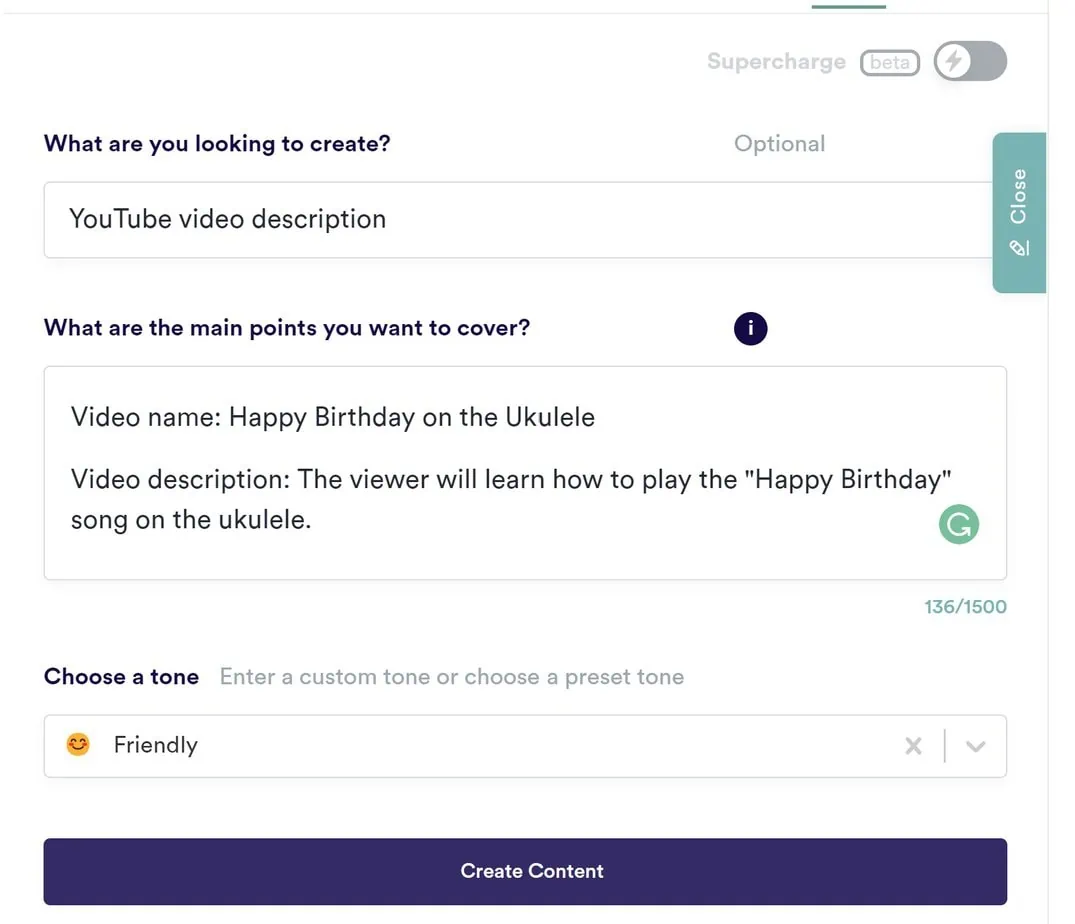
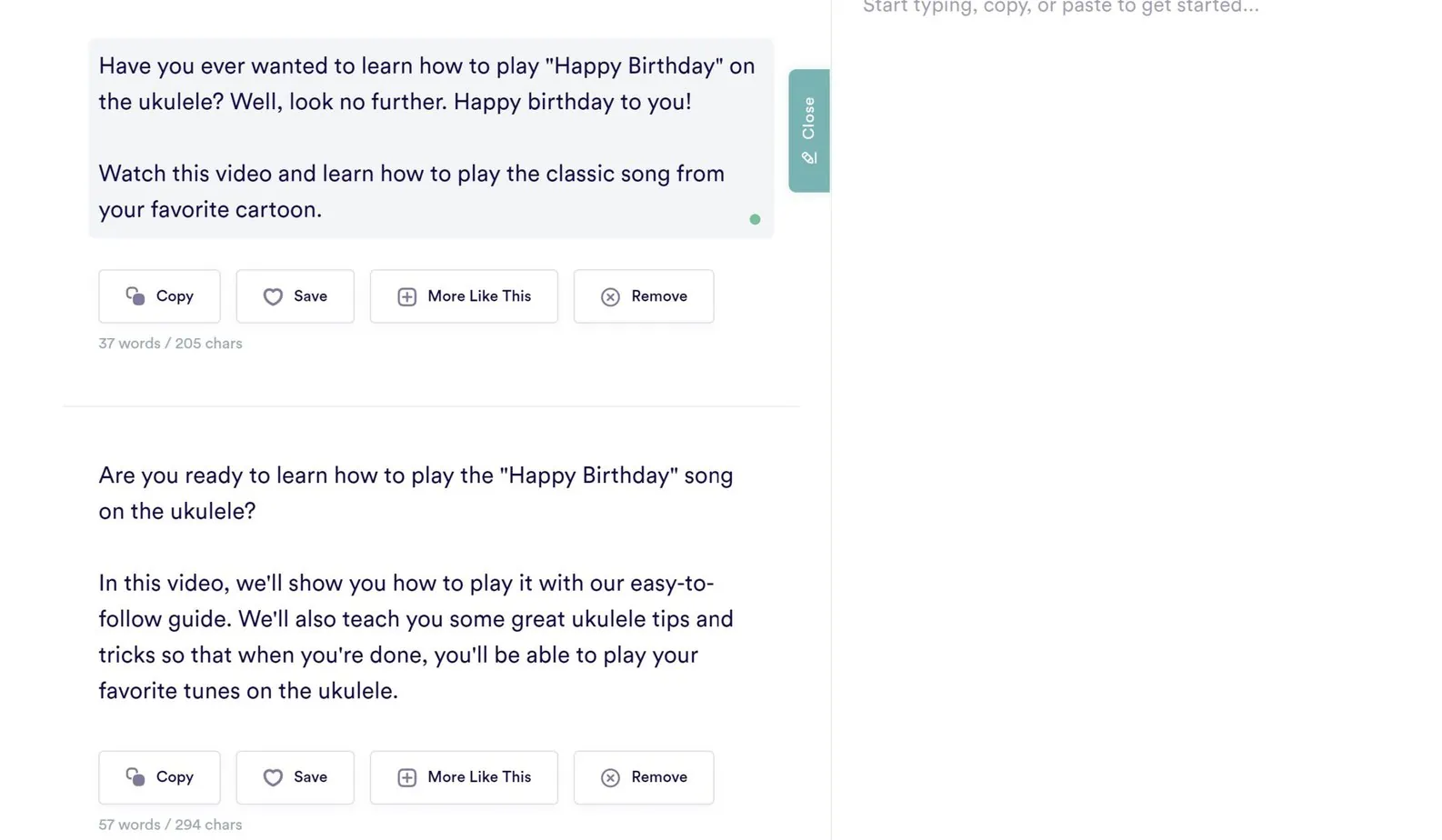
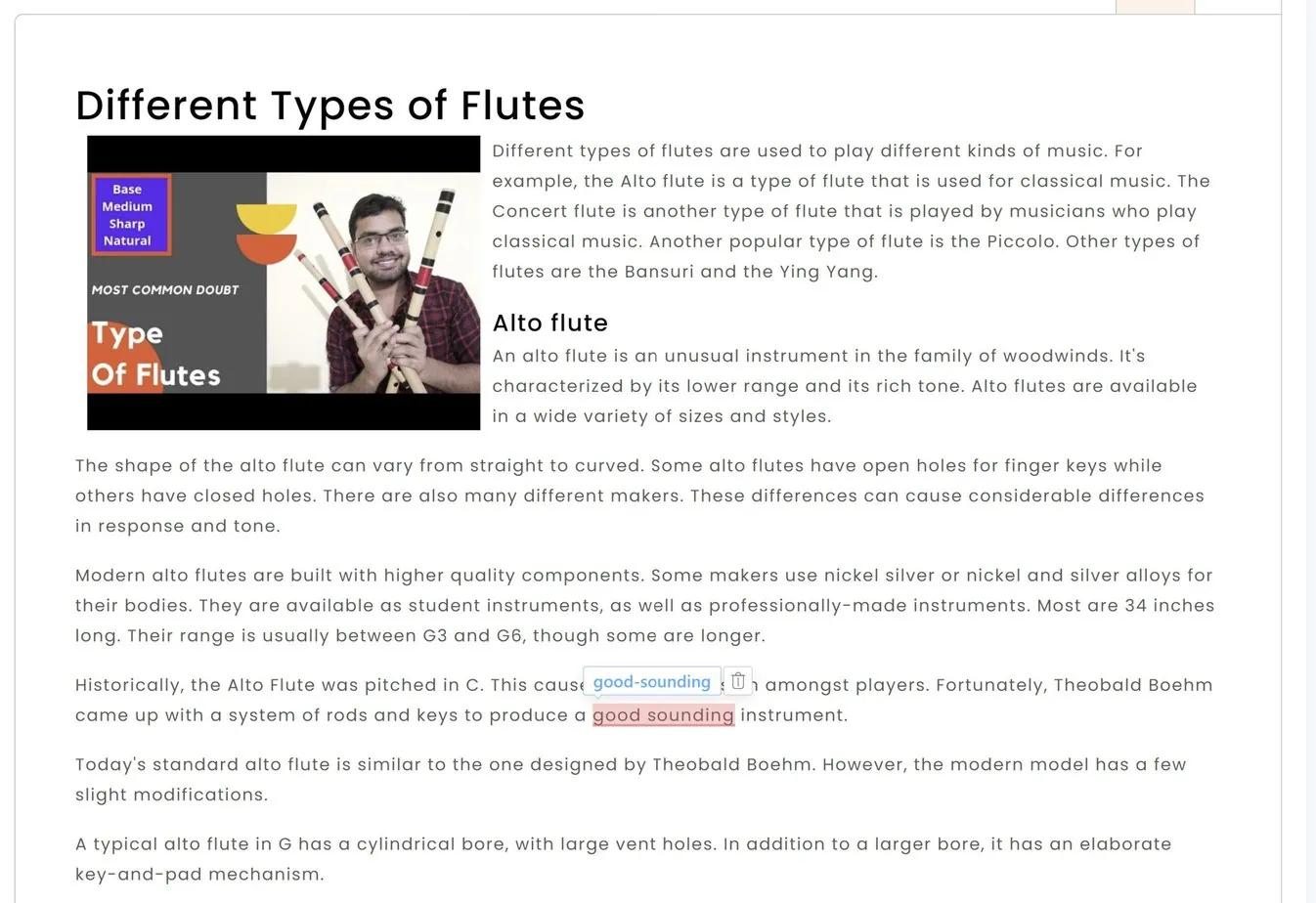
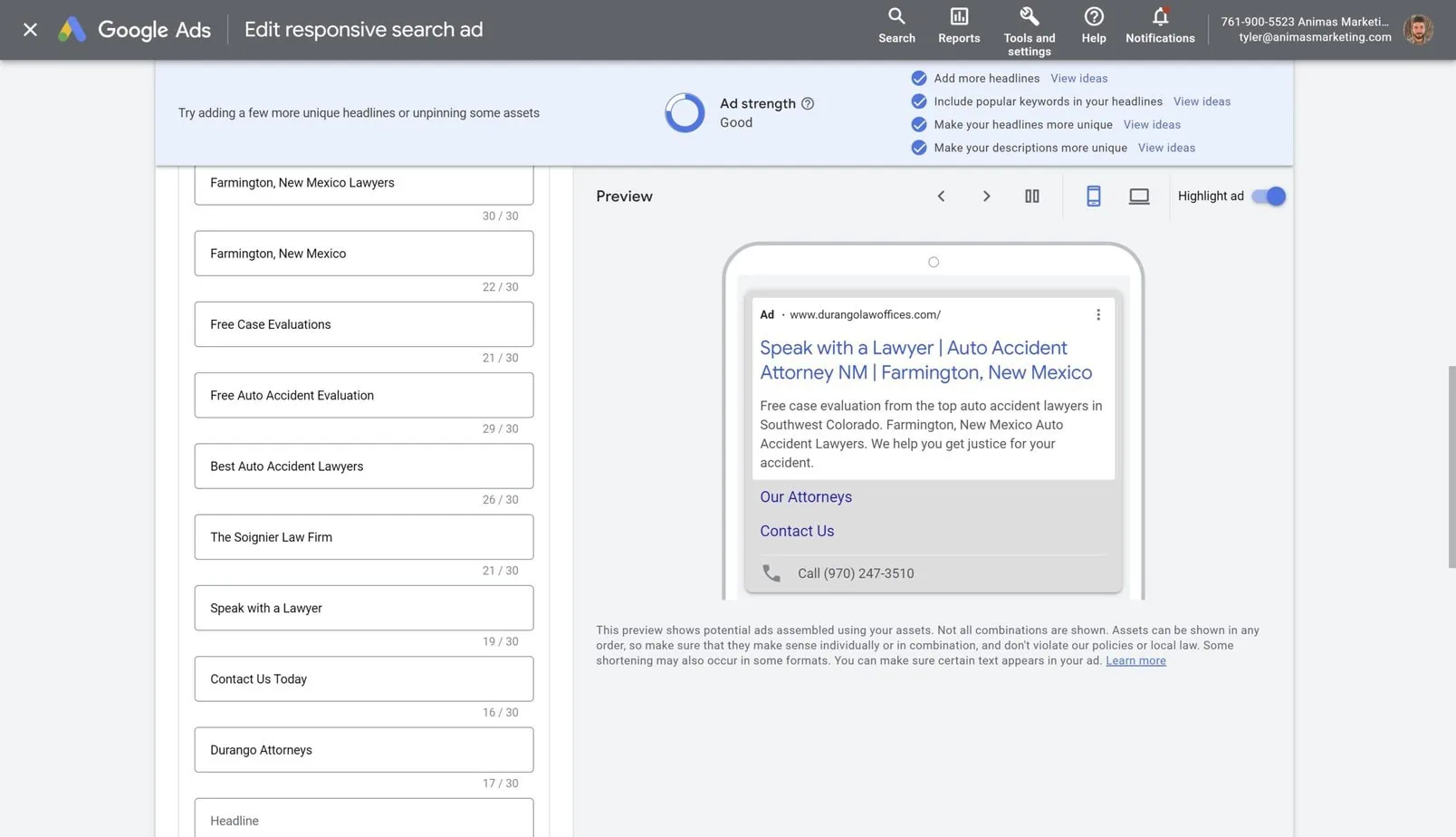








0 Comments